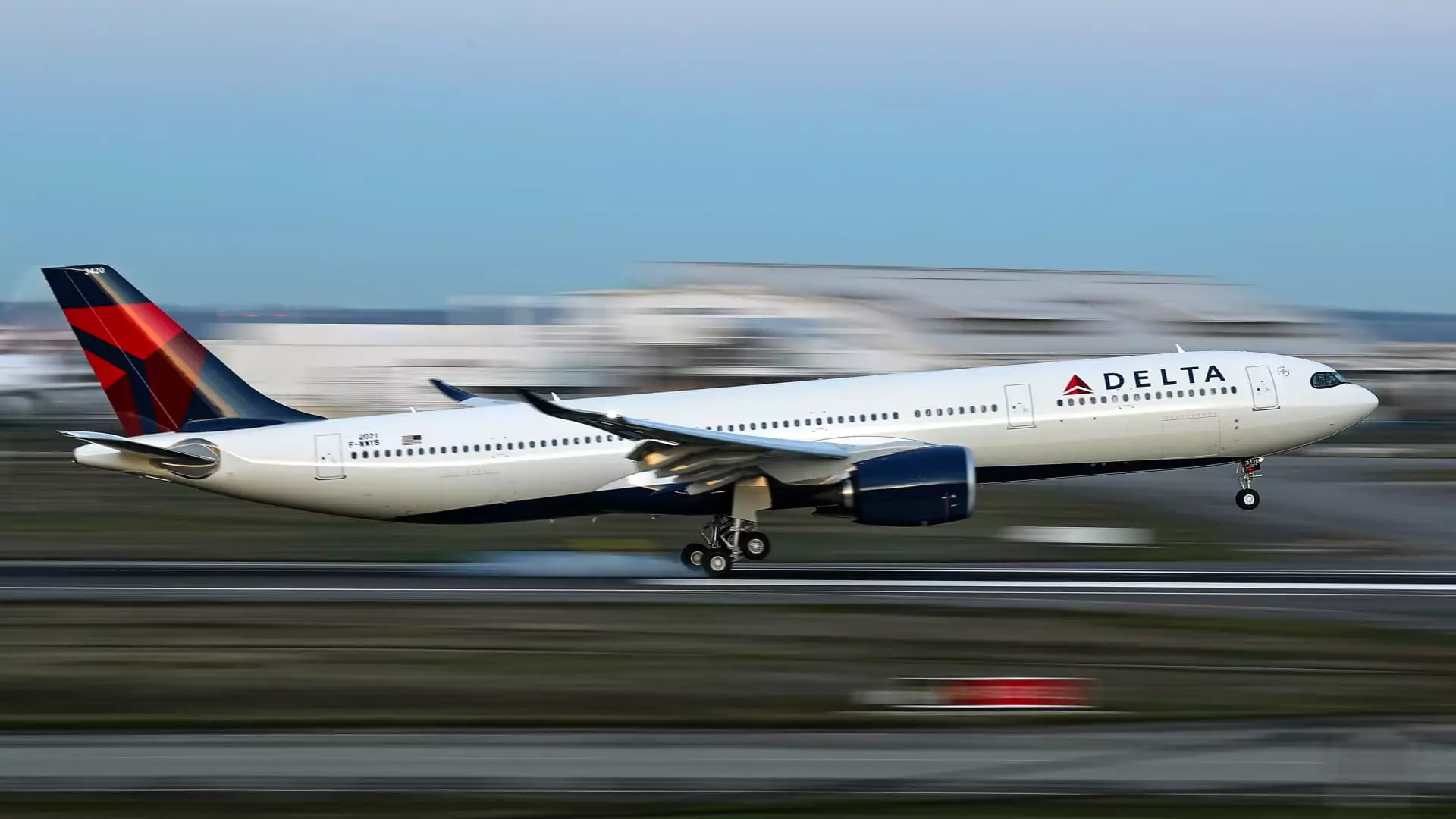Delta Air Lines announced on Thursday its projection of record revenue for the third quarter, thanks to a surge in summer travel demand. However, the airline’s forecast fell short of analysts’ estimates as fares were discounted due to an increase in flights by carriers. The expected sales growth for Delta in the current quarter is predicted to be no more than 4%, which is lower than the 5.8% growth estimated by analysts. Additionally, the adjusted earnings per share forecast of $1.70 to $2 falls short of the $2.05 estimate from analysts. As a result, shares of Delta fell about 9% in premarket trading.
The airline industry is experiencing packed planes but profits are under pressure as costs rise and increased capacity weighs on fares. Delta, being the most profitable carrier in the U.S. airline industry, is seen as a standout. The company’s report is indicative of the potential struggles that competitors, particularly those focusing on the oversupplied U.S. air travel market, may face this summer. Rival United Airlines is also striving to match Delta’s profitability by adding more premium seats that generate higher revenue from consumers.
Performance in the Second Quarter
In the second quarter, Delta’s adjusted earnings per share were $2.36, in line with expectations. Adjusted revenue stood at $15.41 billion, slightly below the estimated $15.45 billion. The airline’s net income dropped by almost 30% from the previous year, with operating expenses increasing by 10%. Despite that, adjusting for one-time items, Delta reported earnings of $2.36 per share, as anticipated. The decrease in airfare prices this quarter has impacted the domestic marketplace and led to lower fare discounting.
Delta is optimistic about the future, with expectations of a positive turn in unit revenues over last year in September. Although the company plans to grow its flying capacity by 5% to 6% in the third quarter compared to last year, it aims to match the lower industry capacity with demand by the end of the summer. Corporate travel is on the rise, with most customers expecting to maintain or increase their spending on corporate travel. Despite strong revenue from international travel following the pandemic, increased competition due to expanded schedules is expected.
Impact of Summer Olympics on Revenue
Delta anticipates that the Summer Olympics in Paris will reduce unit revenue for trans-Atlantic flights by 1 percentage point, resulting in an impact of about $100 million from June through August. However, the airline’s partnership with Air France gives it an advantage in terms of capacity to the French capital. Delta reported significant growth in premium ticket sales, such as first-class tickets, which jumped by 10% in the second quarter. Revenue from coach tickets also saw a slight increase of 0.3% to approximately $6.7 billion.
Financial Forecast
Despite the challenges faced by the industry, Delta reiterated its full-year earnings forecast of $6 to $7 per share, demonstrating confidence in its ability to navigate the fluctuating market conditions. The airline also expects to generate free cash flow of up to $4 billion as it continues to focus on maximizing revenue from various sources. Overall, Delta’s positive outlook and strategic initiatives position it well to address the uncertainties in the airline industry and capitalize on emerging opportunities.

